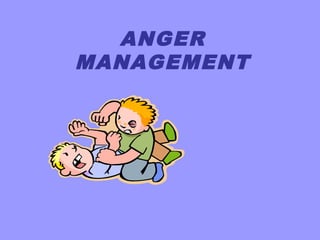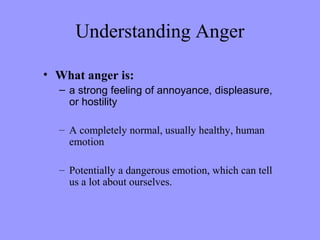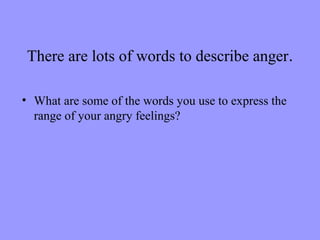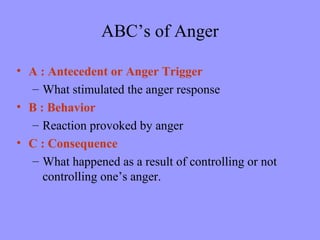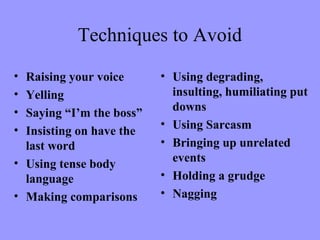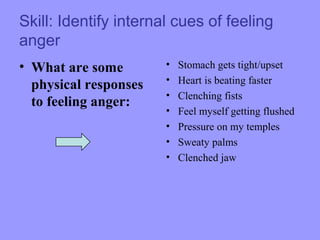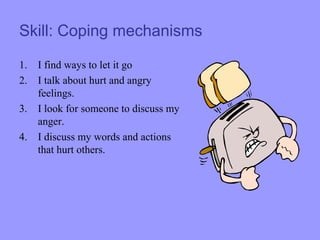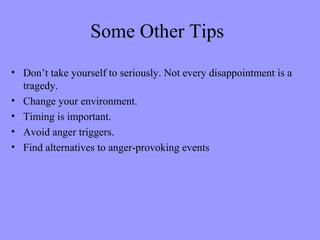This document provides information about anger management. It discusses understanding anger, triggers of anger, myths about anger, physiological changes that occur, identifying anger cues, and what anger looks like. It also outlines aspects of anger, steps to anger management, and skills to develop including identifying feelings, aggressive acts, consequences, thoughts, internal cues, coping mechanisms, communication, active listening, and stress reduction. The overall message is that anger is a normal human emotion but needs to be managed appropriately through understanding triggers and developing skills to express it constructively.
